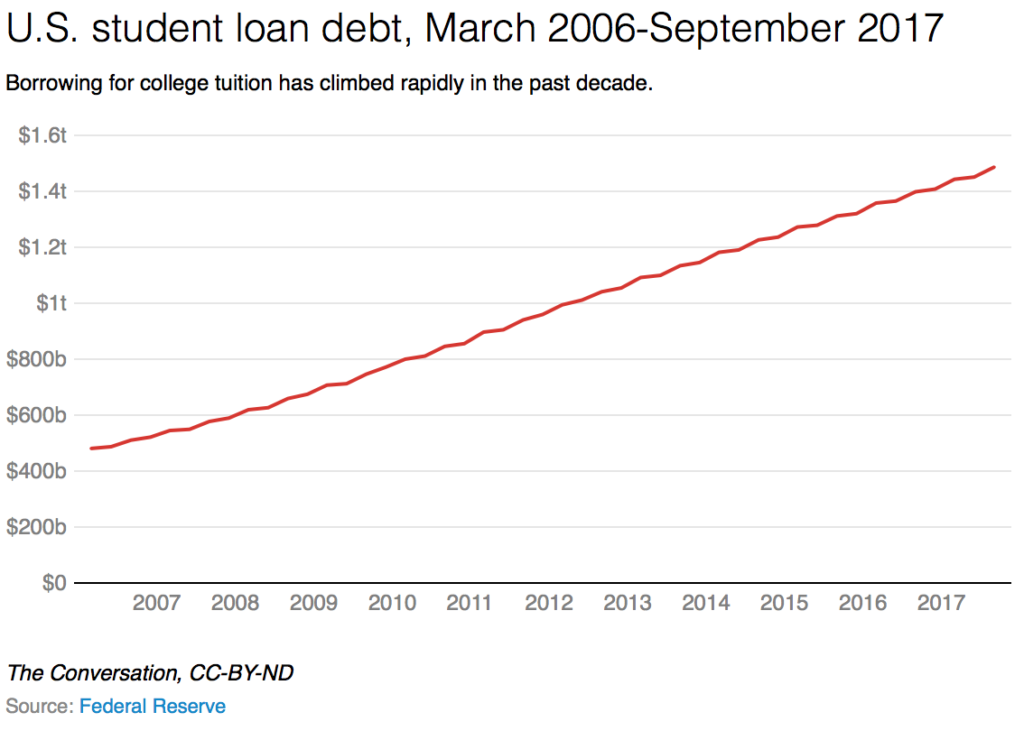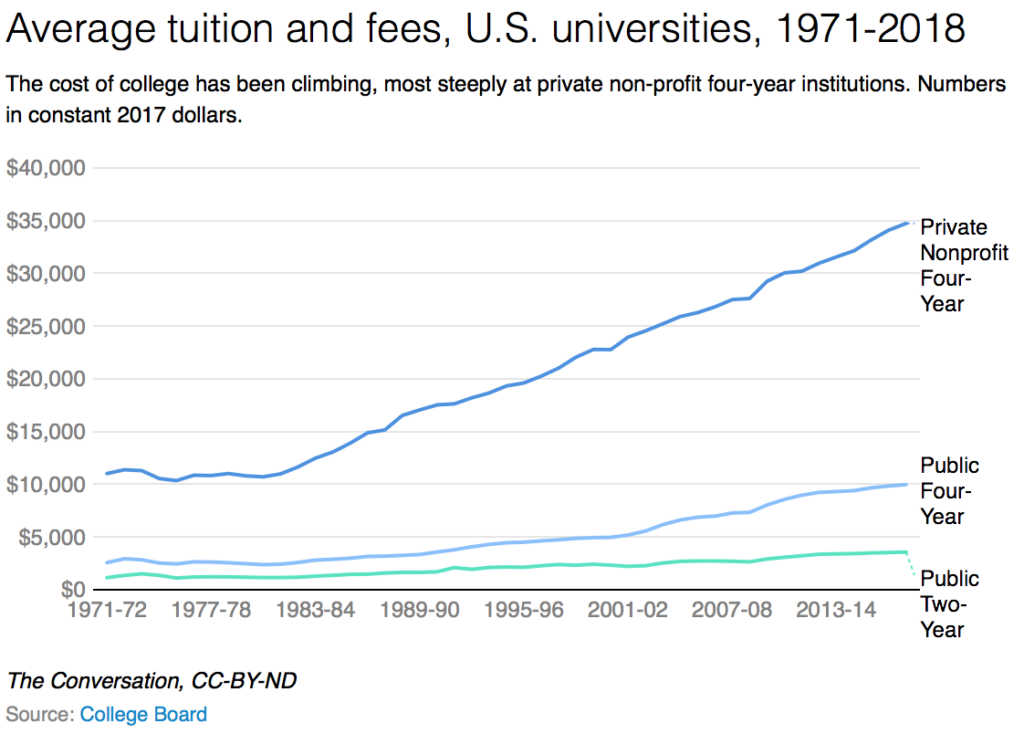The Technological Future of American Universities
A I • Feb 15,2018


U.S. colleges and universities are under pressure: automation, artificial intelligence, competition with schools and online learning systems. Some companies even require workers to have specific skills training and certifications – as opposed to college degrees. Online education is disrupting classic education model and colleges are still not prepared for serious changes. For example, 800 out of 10,000 engineering colleges in India were closed because of a lack of demand and some experts predict mass shutting down within two decades. It’s all happening because of internet education backed by technologies.
Terabytes of education content are now available online for free. Private companies and universities also started experimenting with online courses, offered at low cost, comparing to the traditional studying at the campus, and for everyone in the world. According to the recent study, it’s as effective for students to use a combination of online courses and traditional in-classroom instruction as it is to just have classes in person.
Open online courses providers completely changed the education industry. For example, for a certain fee, students, who are studying in certain online classes from a course provider edX, can get an official transcript with courses and grades from various U.S. universities and employer would never know the person studied online. It’s also a threat to the revenue and business models of modern universities as students can study online, get a transcript and diploma almost free of charge.
Universities have gone a long way of evolution. If you go into details, medieval European universities were focused on canonical law, theological discussion and religious administration. These educational institutions owned huge repositories of knowledge, named libraries.
European colonisation of 15th and 16th centuries lead universities to train officers to managed colonised territories, study navigation and look after colonists’ health. The industrial revolution changed colleges again. The modern workplace is changing and another education shift is needed because technology is changing our everyday life and work. For example, very few people need to know how internal computer systems work; they just need to be able to interpret sensor readings and error messages.
The job market is also changing. Automation is replacing workers at factories with robots. Artificial intelligence, machine learning and computer vision technologies are permanently eliminating high-skill jobs in offices, too. A big number of economies are shifting from manufacturing to service. Routine tasks will be eliminated in near future. But working class will still need some education beyond high school.
The cost of traditional U.S. college education is rising. While demand from degrees from local colleges remained high, student loan debt has reached US$1.45 trillion and 20% of borrowers may not be earning enough to pay loans back.

Costs are becoming a larger factor. That’s why students and their parents more often are wondering whether it’s worth to pay $30,000 or even more than $60,000 for less than 240 days of school. Private colleges’ main competition at the moment comes from public universities.

Experts predict that students might want to take courses from different universities, mix and blend them. It will increase competition between educational institutions and lower revenues of universities. Courses will become shared experiences for online learning communities.
Top universities with a long history and large budgets are trying to find a new way to teach their students and respond to the new challenge. They are forming partnerships with online course providers or building remote-learning programs on their own. A great example is Harvard Extension School. It enrols nearly 2,000-degree candidates and over 13,000 non-degree students, who take classes online, on campus or a mix of both. A four-year degree will cost an average of $49,500, which is cheaper than a single year on campus at Harvard.
But most students, who are studying online, are not looking for a complete degree but particular course, in order to customise their own knowledge. Soon universities will be preparing and building specific programs for particular companies. Employers will soon take advantage of options like this, too: Universities will find themselves asked to build specific programs for particular companies. And universities will find themselves needing to explore other ways artificial intelligence technologies can help reduce the cost of education.
Author: AI.Business
If you like our articles, please subscribe to our monthly newsletter:
[mc4wp_form id=”763″]
Previos Article Next-Gen Digital Agriculture
Next Article The Loss of Privacy in Mass Surveillance is Worrying